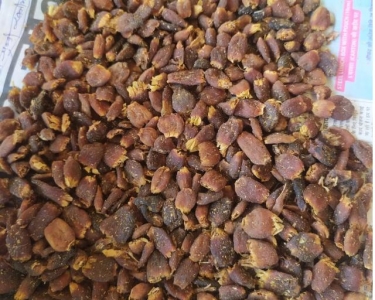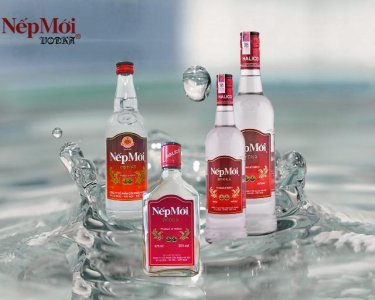Live animals
Couldn't find the product you want?
Fill out this form to request the product.
Products You May Like
Export from Djibouti
Djibouti's economy is mostly concentrated in the service sector. Commercial activities revolve around the country's free trade policies and strategic location as a Red Sea transit point.
The country is strategically located near the world's busiest shipping lanes, controlling access to the Red Sea and Indian Ocean. It serves as a key refueling and transshipment center, and is the principal maritime port for imports to and exports from neighboring Ethiopia. To expand the modest industrial sector, a 56 megawatt geothermal power plant slated to be completed by 2018 is being constructed with the help of OPEC, the World Bank and the Global Environmental Facility.
Djibouti has experienced stable economic growth in recent years as a result of achievements in macroeconomic adjustment efforts. Fiscal adjustment measures included downsizing the civil service, implementing a pension reform that placed the system on a much stronger financial footing, and strengthening public expenditure institutions.
Principal exports from the region transiting Djibouti are coffee, salt, hides, dried beans, cereals, chalk, wax, wood charcoal, sheep and goats, bovine.
Djibouti provides services as both a transit port for the region and an international transshipment and refueling center. Imports, exports, and reexports - primarily of coffee from landlocked neighbor Ethiopia - represent 70% of port activity at Djibouti's container terminal.
The top export partners of Djibouti are Saudi Arabia, Egypt, India, Hong Kong and the Netherlands.
Import to Djibouti
Djibouti is mostly barren, with little development in the agricultural and industrial sectors. The country has a harsh climate and limited natural resources. Due to limited rainfall, vegetables and fruits are the principal production crops, and other food items require importation.
The container terminal at the Port of Djibouti handles the bulk of the nation's trade. About 70% of the seaport's activity consists of imports to and exports from neighboring Ethiopia, which depends on the harbor as its main maritime outlet. The port also serves as an international refueling center and transshipment hub.
Djibouti's top imports are palm oil, ammonia, wheat, delivery trucks, vegetables and fruit.
The top import partners of Djibouti are China, India, Indonesia, Saudi Arabia and Ethiopia. The majority of its imports come from France. Most imports are consumed in Djibouti and the remainder goes to Ethiopia and Somalia.
Check Out Export Portal: A Site That Lets You Export Live Animals
If you are looking to buy and export animals, then you came to the right place! Export Portal's Live Animals Department is an online marketplace for sellers and buyers of any livestock. We work to contribute to the live export industry, which brings many economic advantages and other benefits to countries that rely heavily on livestock imports. In fact, in just Australia alone, this industry contributes roughly $1.8 billion to the country's GDP each year. Moreover, it also ensures food security while helping people meet their protein needs as well.
Finding the Right Animal
We feature a wide range of pigs, cows, sheep, goats, horses, rabbits and hares, turkeys, bees, and fish for sale. An increasing number of American, Australian, German, South African, Argentinian, and Italian farmers and companies are advertising their livestock with Export Portal, portraying just how effective and helpful our site is.
To help customers make more informed purchasing decisions, our site lets users narrow down their searches by the age, breed, and sex of the animal. If you are feeling hesitant to shop on our site and want more detailed information, make sure to check out our seller ratings and reviews, which are written by our buyers and customers. We also collaborate with hundreds of trusted international shipping companies that arrange the transport of all kinds of animals and birds to any country in the world.
Online Shopping is More Simple with Export Portal
Export Portal is an ideal site for everyone who is an avid online shopper. Our convenient options make it easy to find and buy whatever you are looking for. Our seller network from all over the world has everything you need, and our customer support team will make sure you can find it. Our wide assortment of products will be sure to provide you with the best shopping experience. Make sure to check out our site and items today!
Customs requirements of Djibouti
Djibouti Customs Contacts
Customs department
Telephone: +(253) 21 32 52 02
Ministry of Foreign affairs and international cooperation
Website: http://www.djibdiplomatie.dj/
Email: moussagora@yahoo.com
Telephone: +(253) 21 35 24 71
Djibouti is a country situated in the Horn of Africa, bordered by Eritrea, Ethiopia, Somalia, the Red Sea and the Gulf of Aden. The country is a member of the African, Caribbean, and Pacific Group of States, Common Market for Eastern and Southern Africa (COMESA), World Trade Organization, World Customs Organization, World Federation of Trade Unions and other international organizations.
Tariffs
Djibouti applies the COMESA common tariff as it follows:
- no tax on capital goods and raw materials
- 10% customs duty on intermediate products
- 25% on finished products
The average customs tariffs for different products is:
- textiles and fabrics such as silk, wool and cotton - 26 %.
- apparel 1-13%
- home furnishings – 13-26%
Product certification, labelling and packaging
Any business wishing to import products into Djibouti must have an importer's licence. For the clearance of goods imported into Djibouti, the national version of the COMESA customs declaration (DDCOM) is required irrespective of the amount of the imports. Djibouti does not apply any quantitative restrictions on imports.
There are certain products subject to sanitary inspection: live animals, cattle, shells, mother of pearl and corals, shellfish, hides and skins.
Ivory and animal skins must have a certificate of origin and a health certificate.
Food products of animal origin must have a sanitary certificate.
Imports of medicines, arms and ammunition are subject to licences issued by the Ministry of Health and the Ministry of the Interior.
Labeling
Labels on bottles of natural mineral water or spring water must show the geographical origin of the underground source from which they come; the content in dissolved mineral salts and ion fluoride, the detailed composition of the eight major elements; the pH and total mineral content; the serial number. In addition to these basic indications, labels on mineralized waters must show the date of production and the sell-by date, as well as the origin of the untreated water and any treatments it has undergone.
The packaging of hazardous chemicals must show the symbols and information concerning the hazard and indicate safety measures.
Import of any dangerous products is prohibited.
The only products whose import is specifically banned are right-hand drive vehicles and non-biodegradable plastic bags.
Documents for import
- commercial invoice (preferably in French)
- waybill (air waybill for air freight)
- packing list
- delivery note from the shipping agency
- certificate of origin
- pro forma invoices





